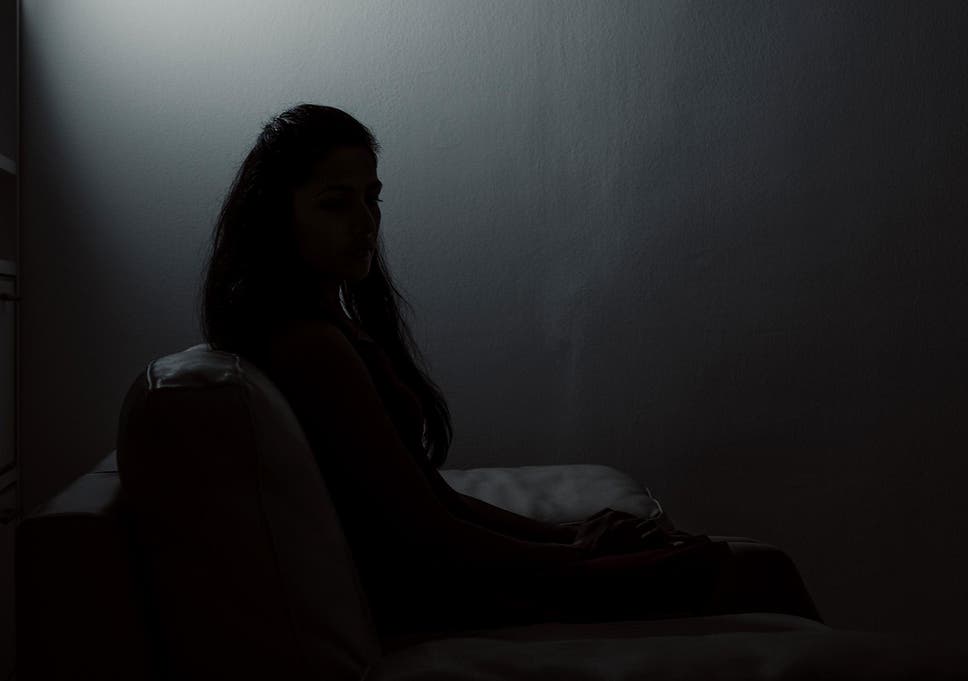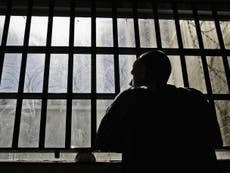Children in custody forced to go without showers or phone calls in ‘harmful’ solitary confinement, inspectors warn
Calls for major overhaul of ‘horrific and shameful’ separation regime
SOLITARY CONFINEMENT IS CLASSIFIED AS TORTURE BY THE UN
May Bulman Social Affairs Correspondent @maybulman

HM Inspectorate of Prisons found 'fundamental flaws' in the use of separation in the five YOIs in England and Wales, with one in ten child inmates officially separated and several others kept locked in their cells without formal oversight ( iStock )
Children in custody are being forced to go without showers or phone calls as they are held in “harmful” solitary confinement, according to a report from the prison watchdog which calls for a “major overhaul” of separation in young offender institutions (YOIs).
HM Inspectorate of Prisons found “fundamental flaws” in the use of separation in the five YOIs in England and Wales, with one in 10 child inmates officially separated and still more kept locked in their cells without formal oversight – some getting as little as 15 minutes outside a day.
In one case, a child was left to lie on a mattress on the floor of a filthy cell for more than 22 hours a day with no meaningful contact. Eight child inmates meanwhile spent a combined total of 373 days in separation unable to access a therapeutic regime that met their health needs.
Chief inspector Peter Clarke called for an “entirely new approach” to separation, saying the findings – based on 85 interviews with separated children and the staff responsible for their care and detailed analysis of 57 of these cases – were “a cause for significant concern”.
He said there were dramatic variations in children’s experience of separation across the five YOIs, which was “inexplicable” in a small custodial estate holding just over 600 people.
“The regime offered to most separated children was inadequate. While it tended to be better on designated segregation units, nearly all separated children spent long periods of time in their cell without any meaningful human interaction,” Mr Clarke said.
“We found children who were unable to access the very basics of everyday life, including a daily shower and telephone call. In the worst cases children left their cells for just 15 minutes a day.”
The Howard League for Penal Reform welcomed the report, saying it had received more than 30 calls last year from or on behalf of children who had been separated from peers and were spending all day locked up alone, including one child with learning difficulties and mental health issues who had been in segregation in a prison for 76 days.
In another case seen by the charity, a 15-year-old boy was spending weeks locked in his cell and not accessing education because the prison could not keep him safe. The Howard League raised this with the prison and eventually the boy was allowed to access education.
Frances Crook, chief executive of the charity, said it was “horrific and shameful” that children in prison were spending days on end locked alone in their cells, adding: “If this were happening in any other setting, we would expect to see criminal investigations.
“The time has come to stop this practice and work for a solution where boys and girls are given the care and support that they need and deserve. It starts with keeping children out of prison.”
Shadow justice minister Imran Hussain said: “Holding vulnerable children in solitary confinement is barbaric and must end now. Despite clear evidence that doing so is seriously harmful to the mental health of these children, the government has so far failed to act.
“Ministers must now listen to the chief inspector [of prisons], children’s commissioner and a long list of experts who have criticised this practice and finally end the use of solitary confinement of children in line with the internationally recognised Mandela Rules.”
The report comes amid growing concern about the use of solitary confinement, with medics and children’s rights experts calling for change.
Shadow justice minister Imran Hussain said: “Holding vulnerable children in solitary confinement is barbaric and must end now. Despite clear evidence that doing so is seriously harmful to the mental health of these children, the government has so far failed to act.
“Ministers must now listen to the chief inspector [of prisons], children’s commissioner and a long list of experts who have criticised this practice and finally end the use of solitary confinement of children in line with the internationally recognised Mandela Rules.”
The report comes amid growing concern about the use of solitary confinement, with medics and children’s rights experts calling for change.
Teenager being locked up for almost 24 hours a day speaks out
Last April, the Joint Committee on Human Rights recommended that the government “must immediately take steps to ensure that separation of children from human contact never becomes solitary confinement”, while a report by the Children’s Commissioner for England in 2018 raised serious concerns about the use of segregation and isolation of children in secure penal settings.
In April 2018, leading doctors issued a joint position statement calling for the solitary confinement of children and young people to be abolished and prohibited, while a report by the European Committee for the Prevention of Torture a year earlier revealed that children in Cookham Wood prison in Kent were “regularly held in conditions akin to solitary confinement for up to 80 days for reasons of discipline and good order”.
In a ruling delivered in 2015 concerning adult prisoners, the Supreme Court held that there were “well known” risks of solitary confinement and that prolonged solitary confinement – defined as being locked up alone for longer than 15 days – is particularly harmful.
The Supreme Court cited expert evidence that the prolonged solitary confinement of adults can have an “extremely damaging effect on [...] mental, somatic and social health” and “some of the harmful psychological effects of isolation can become irreversible”.
Overall, Mr Clarke said: “The weaknesses of current practice and oversight are of such a magnitude that we recommend an entirely new approach, and that current practice be replaced.
“A new model of separation should be implemented that enables managers to use separation to protect children from harm and prevents separated children being subjected to impoverished regimes.”
Justice Minister Wendy Morton said: “It is difficult to read this report and not conclude that we are failing some of the children in our care – that is completely unacceptable and I am determined it will not continue.
“Separation can be necessary to prevent someone seriously hurting themselves or others, and the reality of managing children who can often be violent means that it is difficult to do that while providing full access to everything they can normally do.
“However, there is absolutely no excuse for some of the practices highlighted in this report and I have asked my officials to urgently set out the steps we need to take to stop them happening.”
Last April, the Joint Committee on Human Rights recommended that the government “must immediately take steps to ensure that separation of children from human contact never becomes solitary confinement”, while a report by the Children’s Commissioner for England in 2018 raised serious concerns about the use of segregation and isolation of children in secure penal settings.
In April 2018, leading doctors issued a joint position statement calling for the solitary confinement of children and young people to be abolished and prohibited, while a report by the European Committee for the Prevention of Torture a year earlier revealed that children in Cookham Wood prison in Kent were “regularly held in conditions akin to solitary confinement for up to 80 days for reasons of discipline and good order”.
In a ruling delivered in 2015 concerning adult prisoners, the Supreme Court held that there were “well known” risks of solitary confinement and that prolonged solitary confinement – defined as being locked up alone for longer than 15 days – is particularly harmful.
The Supreme Court cited expert evidence that the prolonged solitary confinement of adults can have an “extremely damaging effect on [...] mental, somatic and social health” and “some of the harmful psychological effects of isolation can become irreversible”.
Overall, Mr Clarke said: “The weaknesses of current practice and oversight are of such a magnitude that we recommend an entirely new approach, and that current practice be replaced.
“A new model of separation should be implemented that enables managers to use separation to protect children from harm and prevents separated children being subjected to impoverished regimes.”
Justice Minister Wendy Morton said: “It is difficult to read this report and not conclude that we are failing some of the children in our care – that is completely unacceptable and I am determined it will not continue.
“Separation can be necessary to prevent someone seriously hurting themselves or others, and the reality of managing children who can often be violent means that it is difficult to do that while providing full access to everything they can normally do.
“However, there is absolutely no excuse for some of the practices highlighted in this report and I have asked my officials to urgently set out the steps we need to take to stop them happening.”

No comments:
Post a Comment